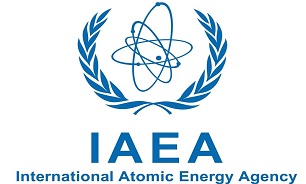IAEA Urges Saudi Safeguards on First Nuclear Reactor
 Satellite imagery recently emerged of the Argentine-built project on the outskirts of Riyadh, which comes amid controversy in Washington over US President Donald Trump’s approval of nuclear projects with the oil-rich kingdom.
Satellite imagery recently emerged of the Argentine-built project on the outskirts of Riyadh, which comes amid controversy in Washington over US President Donald Trump’s approval of nuclear projects with the oil-rich kingdom.
But Yukiya Amano, director general of the IAEA, said there was nothing secret about the reactor and that Saudi Arabia informed the Vienna-based UN body about its plans in 2014.
Saudi Arabia in 2005 signed with the IAEA a so-called small quantities protocol, which exempts countries from inspections if they have no or minimal nuclear programs.
“We have proposed to Saudi Arabia to rescind and replace it by the full-fledged comprehensive safeguards agreement,” Amano told reporters in Washington.
“They didn’t say no, they didn’t say yes, and they are now giving thoughts. We are waiting,” he said.
“For now, they don’t have the material, so there is no violation,” he said.
Amano said that Saudi Arabia may bring in nuclear material “by the end of the year,” although he cautioned that nuclear projects frequently get delayed.
Saudi Arabia has announced plans to spend $80 billion to build 16 nuclear reactors over the coming two decades.
The first project, being built by Argentina’s state-backed nuclear company INVAP, is a so-called low power research reactor (LPRR) that is generally used to train technicians.
On Tuesday, a bipartisan group of American legislators raised concerns about the US nuclear dealings with Saudi Arabia despite Crown Prince Mohammed bin Salman’s “deeply troubling actions” and his not-so-secret penchant for acquiring nuclear weapons.
Negotiations between the US and Saudi Arabia for nuclear cooperation came to a halt under the administration of former President Barack Obama, after Riyadh refused to accept Washington’s proposed standards.
Message end/
